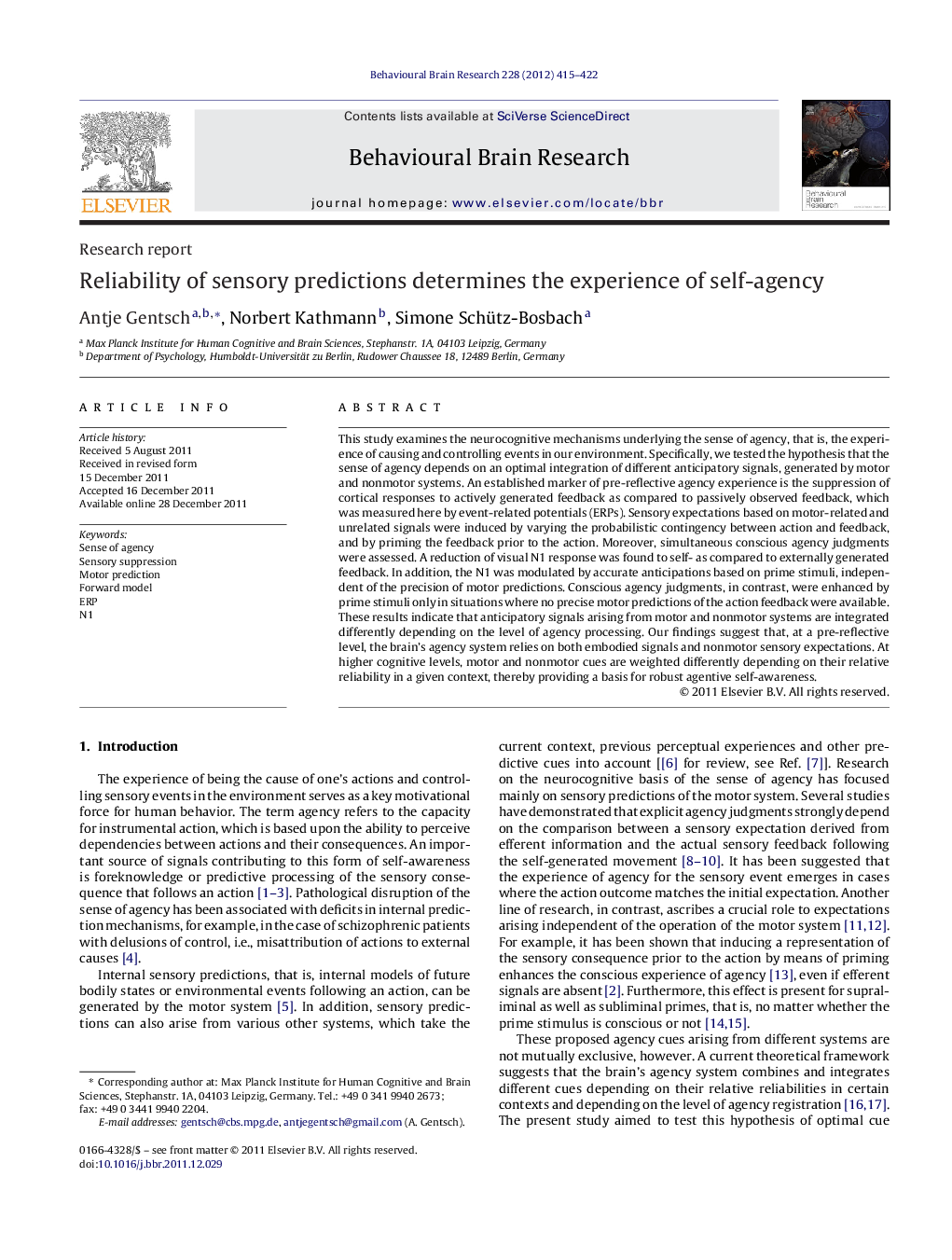| کد مقاله | کد نشریه | سال انتشار | مقاله انگلیسی | نسخه تمام متن |
|---|---|---|---|---|
| 4313476 | 1289998 | 2012 | 8 صفحه PDF | دانلود رایگان |

This study examines the neurocognitive mechanisms underlying the sense of agency, that is, the experience of causing and controlling events in our environment. Specifically, we tested the hypothesis that the sense of agency depends on an optimal integration of different anticipatory signals, generated by motor and nonmotor systems. An established marker of pre-reflective agency experience is the suppression of cortical responses to actively generated feedback as compared to passively observed feedback, which was measured here by event-related potentials (ERPs). Sensory expectations based on motor-related and unrelated signals were induced by varying the probabilistic contingency between action and feedback, and by priming the feedback prior to the action. Moreover, simultaneous conscious agency judgments were assessed. A reduction of visual N1 response was found to self- as compared to externally generated feedback. In addition, the N1 was modulated by accurate anticipations based on prime stimuli, independent of the precision of motor predictions. Conscious agency judgments, in contrast, were enhanced by prime stimuli only in situations where no precise motor predictions of the action feedback were available. These results indicate that anticipatory signals arising from motor and nonmotor systems are integrated differently depending on the level of agency processing. Our findings suggest that, at a pre-reflective level, the brain's agency system relies on both embodied signals and nonmotor sensory expectations. At higher cognitive levels, motor and nonmotor cues are weighted differently depending on their relative reliability in a given context, thereby providing a basis for robust agentive self-awareness.
► Optimal cue integration underlies the sense of agency.
► Agency judgment depends on the reliability and precision of motor predictions.
► Agency judgment relies on action-unrelated predictions if uncertainty is high.
► Sensory predictions prepare the perceptual system for self-produced distal events.
► Neural suppression to sensory action effects reflects embodied self-awareness.
Journal: Behavioural Brain Research - Volume 228, Issue 2, 17 March 2012, Pages 415–422